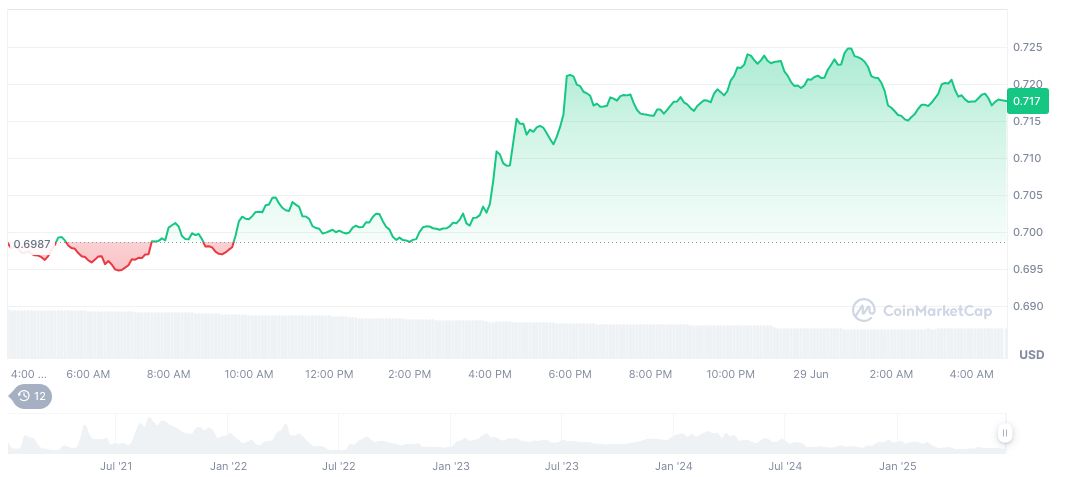- Lido DAO introduces dual governance model on June 29, 2025.
- stETH holders gain veto power over proposals.
- No major market shift observed yet.
Lido DAO approved a dual governance structure on June 29, granting stETH holders potential veto power over proposals.
This move by Lido DAO enhances decentralization, offering stakers significant influence and potential risk mitigation in governance proposals.
Lido’s New Governance Model: stETH Stakers Gain Veto Powers
The Ethereum staking protocol passed a proposal for a comprehensive governance model on June 29, involving both LDO and stETH holders. Nearly unanimous approval was reached, with 53.6 million LDO tokens supporting the change, just clearing the set quorum.
This new framework enables stakers to delay or veto decisions made by LDO token holders. The model becomes active if 1% of total staked ETH signals dissent, delaying proposals by 5 days, or freezing them with a 10% threshold.
Expert Hasu commented that this governance model “reduces risk that users have from any kind of governance attack [and] the trust that they need in the maintainer companies and the LDO holders”. While there are no immediate government or industry reactions, community response highlights a commitment to decentralized governance in DeFi.
LDO Token Holds Steady, Future Impacts Are Anticipated
Did you know? This governance approach is unique in DeFi for introducing dynamic timelocks and scaled staker veto power, setting new precedents in decentralized decision-making processes.
As of June 29, 2025, Lido DAO’s LDO token trades at $0.72. The market value stands at $643.07 million, reflecting a 2.92% rise in 24 hours. The fully diluted value is $716.94 million. This data from CoinMarketCap indicates a fluctuating market interest recently.
Insights from the Coincu research team suggest that this governance model could encourage institutional involvement by reducing centralization risks. Historical trends indicate stakers might experience a more secure staking environment with robust governance oversight.
| DISCLAIMER: The information on this website is provided as general market commentary and does not constitute investment advice. We encourage you to do your own research before investing. |
Source: https://coincu.com/345798-lido-dao-dual-governance-approval/
